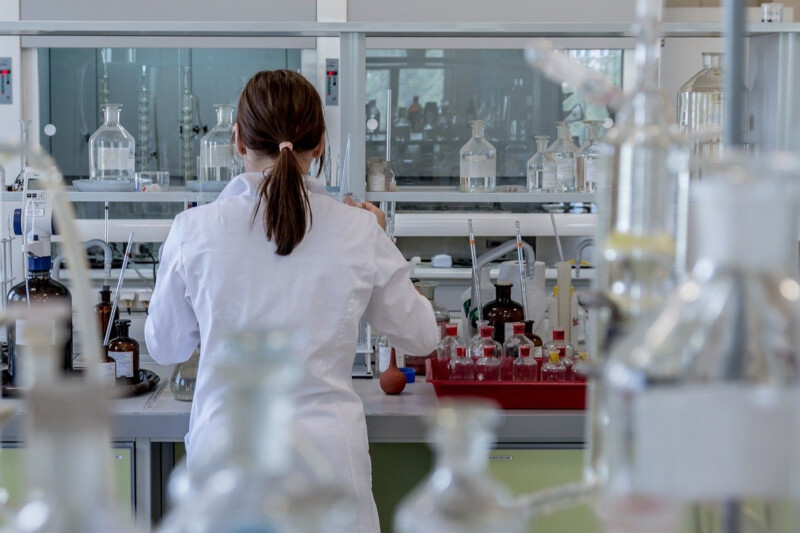Les biotechs développent de plus en plus de traitements et de médicaments sans l’appui des grands laboratoires pharmaceutiques, dont le nombre d’essais cliniques est en baisse depuis 10 ans. Les vaccins ARN contre le virus SARS-Cov-2, développés par les biotechs Moderna et BioNTech, illustrent ce dynamisme à l’échelle mondiale des biomédicaments.
3 300 essais cliniques lancés par des biotechs en 2021
Les biotechs évoluent de plus en plus seules, à l’écart des grands laboratoires pharmaceutiques dont les essais cliniques ont diminué d’un tiers sur les 10 dernières années, comme le constate un récent panorama dressé par l’institut de recherche IQVIA à l’échelle mondiale.
Ces entreprises innovantes ont en commun leur jeunesse, un chiffre d’affaires annuel de moins de 500 millions de dollars et une spécialisation dans le développement de biomédicaments.
Contrairement aux médicaments classiques, qui sont encore les plus répandus sur le marché et dont le principe actif est obtenu à partir de la synthèse chimique, les biomédicaments renferment une substance active issue d’une source biologique (plasma, cellules, tissus, bactéries, plantes, etc.).
Les biotechs, dont le développement de nouveaux produits a doublé depuis 2016, multiplient les essais cliniques : en 2021, elles en ont lancé 3 300, un chiffre qui a quasiment doublé en 5 ans.
Actuellement, pas moins de 4 000 médicaments et traitements sont en développement au sein des biotechs, ce qui représente 65 % du pipeline de nouvelles molécules en cours d’évaluation. La part des biotechs n’était que de 34 % en 2001, et de 50 % en 2016.
Des disparités selon les zones géographiques
À l’échelle mondiale, 2 624 biotechs avaient en 2021 au moins un biomédicament en essai clinique. Toutefois, ce dynamisme apparent cache d’importantes disparités selon les zones géographiques.
Ainsi, la part des biotechs dans le pipeline est de 22 % au Japon, de 47 % en Europe et de 62 % aux États-Unis. Cette part atteint 83 % en Chine, où l’industrie pharmaceutique n’en est encore qu’au début de sa croissance.
La majorité des biotechs sont implantées aux États-Unis, où elles bénéficient de fortes valorisations en Bourse et d’un marché très rentable. Celles dont le siège est en Europe représentent 20 % du pipeline de médicaments développés par des biotechs à l’échelle mondiale, contre 46 % pour celles dont le siège est aux États-Unis.
Jusqu’ici, les grands laboratoires pharmaceutiques avaient pour habitude de racheter les biotechs dès lors que leur biomédicament en développement atteignait la phase 3 des essais cliniques.
Dorénavant, les biotechs sont de plus en plus nombreuses à préférer se rapprocher d’autres biotechs pour commercialiser leurs produits. Ces rapprochements représentent aujourd’hui 62 % de l’ensemble des transactions, contre seulement 49 % en 2016.
Il y a 10 ans, la part de nouveaux produits soumis aux autorités sanitaires américaines par des biotechs n’était que de 11 % ; elle atteint désormais 42 %.
Le prix de vente des médicaments est un facteur déterminant pour les biotechs. Le marché américain doit sa rentabilité au prix libre des médicaments, tandis qu’en Europe, les biotechs doivent composer avec un prix plus bas et manquent de moyens financiers pour commercialiser elles-mêmes leurs produits.
